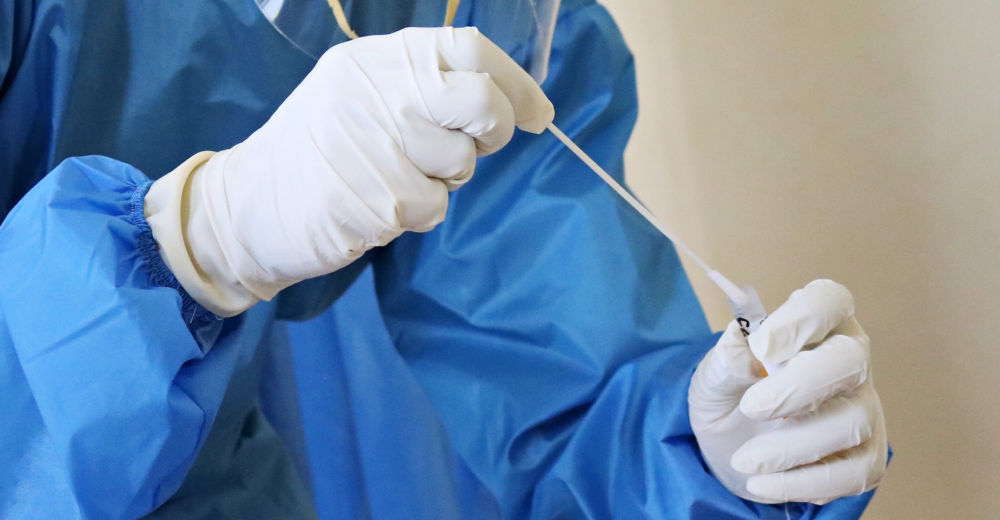Follow us on Telegram for the latest updates: https://t.me/mothershipsg
The World Health Organisation (WHO) said in its Covid-19 weekly epidemiological update on Dec. 28, that the overall risk related to the Omicron variant remains very high.
Omicron variant remains a concern
WHO stated that "consistent evidence shows that the Omicron variant has a growth advantage over the Delta variant with a doubling time of two to three days".
There have been rapid increases in cases in several countries, including the United Kingdom and the United States, that have seen Omicron becoming the dominant SARS-CoV-2 variant.
South Africa, where the new variant was detected, has however seen a decline in cases.
"The rapid growth rate is likely to be a combination of both immune evasion and intrinsic increased transmissibility of the Omicron variant," said WHO.
WHO added that Covid-19 tests using polymerase chain reaction (PCR) test or antigen-based rapid diagnostic tests (Ag-RDT) assays do not appear to be impacted by the Omicron variant.
However, AFP reported that rapid Covid-19 home tests are more likely to give a false negative for Omicron cases.
Causes less severe illnesses but a strain on healthcare system
Data from the United Kingdom, South Africa and Denmark previously suggested there is a lower risk of hospitalisation for the Omicron compared to the Delta variant.
As compared to the previous strains, Bloomberg also reported that patients with the Omicron variant may suffer less severe illnesses, especially for those who have been vaccinated and received a booster shot.
Despite this, WHO warns that more data is needed to understand the clinical markers of the severity of illnesses caused by the variant. These clinical markers include the use of oxygen, mechanical ventilation and death due to the variant.
It also depends on how the severity may be affected by a person's vaccination status and if they were previously infected by the SARSCoV-2 virus.
With regard to treating infected patients, WHO said:
"It is also expected that corticosteroids and interleukin 6 receptor blockers will remain effective in the management of patients with severe disease, however, preliminary data suggest that monoclonal antibodies may be less able to neutralise the Omicron variant."
While patients infected with Omicron variant typically display mild symptoms, the sheer number of infections can still overwhelm healthcare systems.
As such, governments in Europe and the U.S. are back to tightening restrictions to prevent or reduce the strain on their healthcare systems.
An overview on Covid-19 situation
Between Dec. 20 and Dec. 26, the global number of new Covid-19 cases increased by 11 per cent as compared to the previous week, while the number of new deaths remained similar.
WHO reported that the region of the Americas had the largest increase in Covid-19 cases followed by the African region, while Southeast Asia saw a decrease from previous weeks.
Singapore reported 170 Omicron infections out of 341 new Covid-19 cases yesterday (Dec. 29).
Ministry of Health (MOH) said in a press release on Dec. 26:
"Given the transmissibility of Omicron and the open nature of our society, it is inevitable that Omicron will spread in our community, as it has in over 100 countries already. In the coming days and weeks, we should expect more community cases, and rapid doubling of cases."
Related
Follow and listen to our podcast here
Photo by Mufid Majnun on Unsplash.
If you like what you read, follow us on Facebook, Instagram, Twitter and Telegram to get the latest updates.
